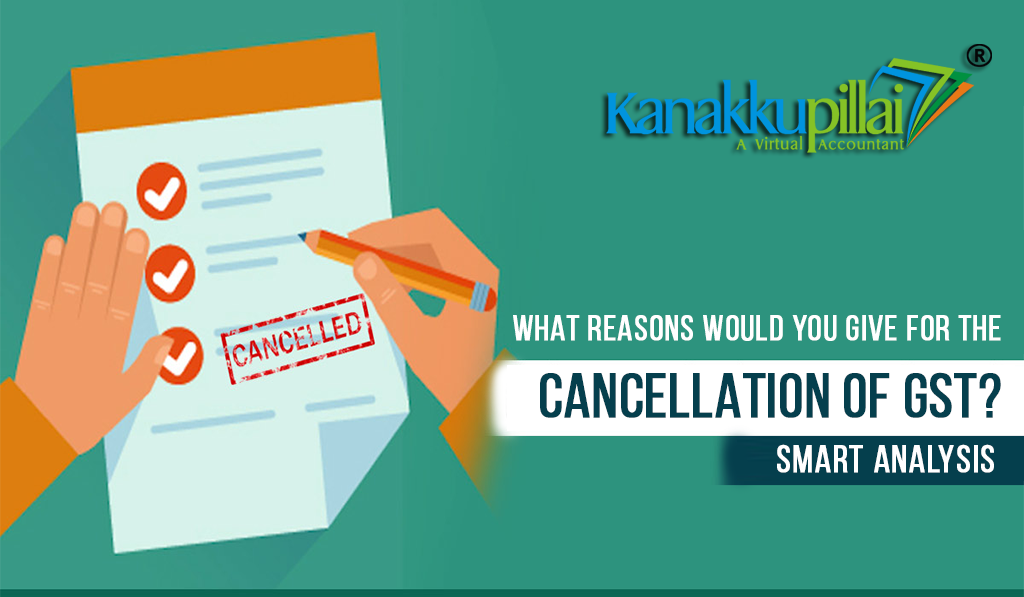Initially, we want to clarify that GST can be cancelled under certain circumstances, and if the authorization finds you genuine, keeping a dot won’t cause a delay. To cancel GST, you must be the person who registered it, the officer who admitted it, or the legal heir in the case of the death of a person who had registered it. Go through this completely to get crystal-cut details on the cancellation of GST.
Who can help you with the cancellation of GST?
A person who registered for GST would not be allowed to cancel it without completing a financial year. The officials can cancel it, but only in a limited number of cases.
If an official member decides to cancel the GST Registration due to the violation of service or goods, he/she will be issued a notice with an in-depth annexure. In a matter of a week, if he/she solves it, there will be no legal issue.
GST won’t threaten you in the worst case, such as closure or discontinuance of business. We will not allow you to suffer due to the cancellation of GST for the transfer of business, merger, de-merger of a partnership, sale, or lease.
Documents required for the cancellation
The foremost thing is the contact address, including the correct mobile number and email address. Then, the board director should submit the grounds of cancellation with the desired date on it., and particulars submitted on the registration. Payment of the input tax must be cleared for the stock goods and unfinished goods. Then, this document must be attached.
Final GST return
The Director whose registration gets cancelled should file the final GST return filing in form GSTR-10 within that quarter. This act is to ensure that the taxpayer is free from all official occurrences. If the taxpayer skips this final GST return, he/she would be issued a notice in GSTR-3A. Once the taxpayer gets the notice, they should complete this process within the next 15 working days.
What should you do if the GST gets cancelled by the GST officials?
If your GST registration application gets cancelled by the GST officials, you should apply for revocation of the cancellation. This process should be done within thirty days of the cancellation.
If your GST registration gets cancelled just because of failure in filing GST return, then it would be mandatory to apply for revocation of cancellation only when you settle the due tax.





